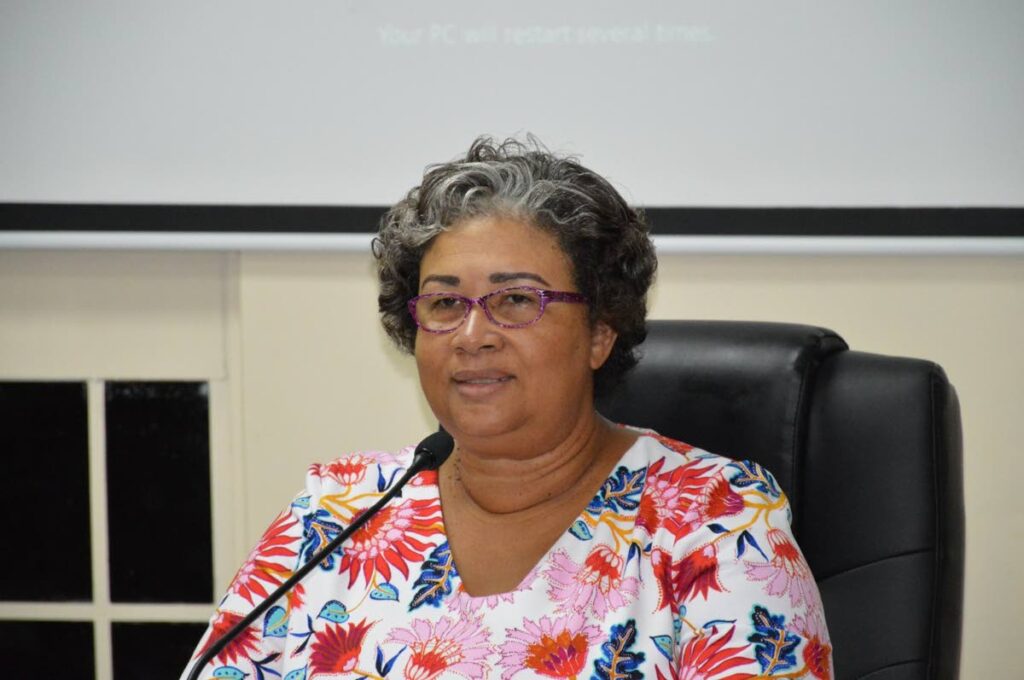Carpha hosts regional health security meeting

Health Minister Terrence Deyalsingh has commended the Caribbean Public Health Agency (Carpha) for its initiative in calling a meeting to plan for regional health security (RHS). He said it will assist in developing “muscle memory” in dealing with further public health threats and emergencies in the future.
“(Carpha executive director) Dr Joy St John and her team performed magnificently under covid19. We must now learn the lesson as we move forward in this quest to protect our publics. The most important development emerging out of Carpha’s RHS consultations is that of regional consensus. It is important. Members of Caricom and regional health organisations all agreed that a comprehensive, all-encompassing and equitable and realistic plan must be developed.”
Speaking at the launch of the two day meeting at the Hilton Trinidad Hotel and Conference Centre on Tuesday, Carpha surveillance disease prevention and control division director Dr Lisa Indar said RHS encompasses the capacities required for member states to prepare for and respond to public health threats, issues, and concerns that transcend national boundaries and potentially impact on economic stability, trade, tourism, and access to goods and services in the region.
She said the objectives of the meeting were to update member states and partners on advancements that would contribute to the RHS pathway and to conduct a mapping exercise to coordinate Carpha member states and agencies’ priorities, funding, gaps/limitations and coordination for informing a development of a comprehensive RHS pathway, and would be comprised of chief medical officers, agencies, and partners.
Centres for Disease Control global health security and emergency response and recovery branch team lead Dr Richard Garfield said he admired the region not only for its knowledge of its people, but also a coordinating unit to manage emergencies.
He noted that the region was one of 18 applications approved for a grant from the pandemic fund, out of 157 applications. He said for the next five years, there will be support for developing systems, and this region was uniquely primed to use these resources.
“It requires an administrative skill and coordination we haven’t ever had, and we at the CDC are going to have to get better at it. At the CDC you may think we know, but we don't know what we're doing, we don't know how much money we have. In the decisions made to avoid shutdowns a few months ago, we lost a quarter of our funding overnight that we didn’t even realise was related to that. Everyone has to develop the operative skill in budgeting and administration and to be ready for changes we can’t anticipate if we’re going to use these resources well.”
Garfield commended the region for its ability to communicate with its population.
“As an external agency assisting you with technical and financial support, what we can do is help you to build capacity, which means the physical infrastructure, the training, and the employment of staff to be able to do things. We learned from covid19 that some of the countries that had the best capacity didn’t have the best result and it’s how you use the capacity that’s most important. Some countries with far more limited capacity actually did better than others, because they knew what their limitations were and supplemented and responded to them.
He said the single most important factor in how countries dealt with covid19 was the level of trust and quality of communication between leadership and population.
“Trust was good here to start with in the region, and you took advantage of the needs of the population to reinforce that trust and I think there’s a high level of openness to messages you would give to the population, and a fairly high level of your ability to listen to them, and their interests and concerns, certainly compared to our country where trust is low. It doesn't matter how much capacity you have if people don't believe that any of the science means anything.”
Garfield said there will be greater threats to trust in the upcoming years and it was important Carpha continued building on this trust.
“Trust is the bridge between your capacity and the ability to use your capacity. These are all the things that go on behind the development of emergency operation centres, the training of response to that, the training Carpha recognises the need to do in improving communications and awareness of rumours and things like that, disease surveillance, all these technical aspects.”
Deyalsingh said there was a need for coordination and sharing between Carpha member states. He said the focus should be on data collection, building a resilient population, and funding pandemic relief in a way that will not crash national and regional economies.
St John said the success of the region in receiving a grant from the pandemic fund was timely, as additional resources are required to address national level gaps and regional level gaps with a quantum of outputs required.
“Given that implementation has commenced for the pandemic fund by January 2024, I feel this meeting is a start to the process, and you have the opportunity to consult and plan efficient implementation. Also of note is that the Cricket World Cup will take place in the Caribbean next year, so we should consider the pandemic fund in assisting us in achieving readiness for what will be a complex undertaking. The board of the fund required robust monitoring and evaluation of the stated activities. This is an important aspect of the meeting and its consideration of the content of its decision.”
St John said the region continues to face public health threats, even as covid19 is no longer a threat of international concern, with a number of different public health threats being detected over the past year. Added to this, she said, was the threat of climate change, which would affect people’s quality of life, and pose real health challenges.

Comments
"Carpha hosts regional health security meeting"